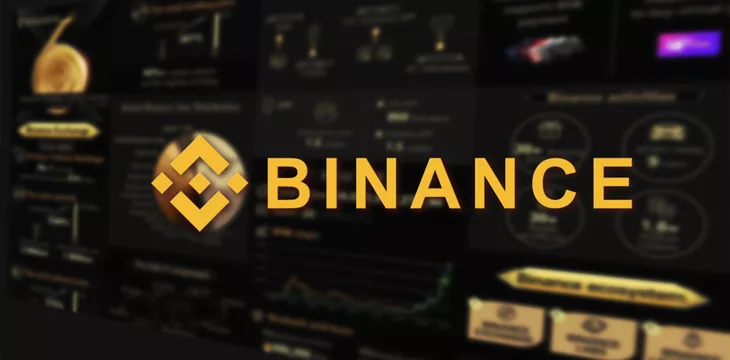Binance has lost a major fiat payment on-ramp in Australia, the latest down-under warning shot fired across the digital asset exchange’s bow.
Late Wednesday, Binance Australia abruptly announced that it was “unable to facilitate PayID AUD deposits for Binance users due to a decision made by our third party payment service provider.” This provider helpfully informed Binance that “Bank Transfer withdrawals will also be impacted.”
Binance said it was “working hard to find an alternative provider” while adding that customers “can still buy and sell crypto using credit or debit card and our Binance P2P marketplace will also continue to operate as usual.”
On Thursday, Westpac—one of Australia’s ‘big four’ banks—announced that it had begun trialing “new cryptocurrency blocks to prevent scam losses.” Westpac said its internal data showed “investment scams account for approximately half of all scam losses and a third of all scam payments are transferred directly to a cryptocurrency exchange.”
Last month, the Australian Competition and Consumer Commission’s Scamwatch unit issued its latest Targeting Scams report, which shows 3,910 Aussies losing a combined AU$221.3 million (US$146.5 million) via crypto-based scams in 2022. The number of individuals victimized in this fashion was up 162% from 2021.
A phased trial of Westpac’s new crypto-blocking will be “rolled out over the coming weeks.” While Binance went unmentioned in Westpac’s announcement, the Australian Financial Review reported that the bank had “banned customers from transacting with Binance.”
Some irate Binance customers responded by wondering why the exchange hadn’t provided any advance notice of the banking changes. Other customers wondered whether Binance was similarly blindsided by the change or if it was aware something was in the works but chose to stay silent rather than spark a flood of withdrawal requests.
This week’s development follows last month’s decision by Australia’s securities regulator to rescind the license held by Binance Australia’s derivatives trading platform. The revocation followed a “targeted review of Binance financial services business” because the platform allowed retail traders to access services that are restricted to ‘wholesale’ (aka institutional or ‘qualified’) investors under Aussie rules.
Commonwealth 2, CZ 0
Binance boss Changpeng ‘CZ’ Zhao didn’t hint at any looming changes in the exchange’s Australian operations during Wednesday’s ‘Ask Me Anything’ session on Twitter. But he did offer some comments regarding Binance’s difficulty in maintaining fiat on-ramps in other markets, including the United Kingdom.
In March, Binance announced that its U.K. customers would be unable to transact in English pounds as of May 22 after Paysafe decided to suspend its dealings with the exchange. CZ said Wednesday that one of its U.K. processors “recently made changes to its enhanced due diligence.” This included lowering the ceiling for individual transactions and the volume of overall transactions before additional ‘know your customer’ data is required.
CZ confirmed that Binance doesn’t “officially operate in the UK,” having bought a U.K.-licensed company a few years ago and unsuccessfully attempted a back-door entry into the market. CZ said Binance currently operates in the U.K. under a “reverse solicitation” model, in which companies based outside the country are permitted to serve U.K. customers provided the customer ‘exclusively initiates’ the relationship. (And yet Binance appears to have people working in a ‘UK Marketing’ department?)
Backed by magic
CZ was also asked about Binance’s ill-fated partnership with New York-based Paxos Trust on the BUSD stablecoin. In February, state regulators ordered Paxos to halt issuing new BUSD, concerned that Binance was misleading customers by issuing its version of BUSD on the Ethereum blockchain without sufficient U.S. dollar backing.
CZ said BInance’s relationship with Paxos was “fine,” but he nonetheless expects BUSD will “slowly decline … in relatively orderly fashion” due to no new coins being issued. Undaunted, CZ claimed Binance had “a pipeline of new stablecoins that we do plan to support.” Some of these are fiat-backed—not all of them by USD—while others are algorithmic stablecoins.
That last detail is all the more jarring, considering it was the collapse of the UST algorithmic stablecoin that helped kick off 2022’s wave of insolvencies. The ensuing carnage led regulators/legislators in multiple countries to state their emphatic opposition to algorithmic stablecoins based on an utter lack of faith that their unwieldy mechanisms can withstand real-world conditions.
That CZ would continue to speak so enthusiastically about launching new ‘algos’ in the current regulatory climate is perhaps further evidence of his desperation to keep customers gambling in the Binance casino. With fiat on-ramps rapidly turning into dead ends, CZ needs new ways for customers to buy his casino chips.
Utility v. futility
Binance is, without a doubt, the world’s largest crypto gambling joint, its revenue reliant on high-leverage derivatives and other sketchy products (like the function-free PEPE meme coin) to separate customers from their money. So it’s no great mystery why CZ led the charge to delist Bitcoin SV (BSV), which as a utility-focused blockchain, is utterly unsuited to be a chip on Binance’s rigged tables.
BSV’s critics love to compare its fiat value with that of BTC, the utility-free token that emerged after BTC Core developers finished messing with Satoshi Nakamoto’s original Bitcoin protocol. This price comparison ignores the fact that BSV developers offer workable real-world examples that speak to BSV as a low-fee micropayment system, a data management powerhouse, and the only blockchain technology that can complete the internet and realize the promise of Web3.
Take this week’s London Blockchain Conference preview event, at which Michelin-starred chef Ollie Dabbous served up a sumptuous feast for a salivating invite-only crowd. In addition to satisfying their palates, those in attendance had the satisfaction of knowing that the ingredients on their plates were indeed what they purported to be.
This feat was accomplished via Gate2Chain’s Trace application, which offers consumers a ‘source to plate’ assurance of authenticity. Developed in collaboration with IBM, Trace ensures that the food on your plate—or the luxury items in your closet and hanging on your wall—can be meticulously tracked back to its place of origin.
Trace is just one example of BSV-based solutions that offer value to everyone who uses them. Compare that to other protocols, which provide no value for anyone other than the person using the tokens to place their bet—and even that person, more often than not, fails to see any return.
A recent Bloomberg article detailed the pessimistic cloud hanging over the blockchain casino space since the onset of ‘crypto winter’ and the taunts of ‘not gonna make it’ and ‘have fun staying poor’ rebounding on those who issued them. As one former NFT speculator told the interviewer: “It’s very funny to look back and think, ‘Were we all just drunk or something?'”
You’re free to have a drink at the London Blockchain Conference, but this is one blockchain shindig from which you’ll leave with more than a hangover. The knowledge you acquire from this event could help shape your future in ways you can now only imagine. Hey, if BSV can marry blockchain and fine dining, imagine what other useful tricks it has up its sleeve.
The three days of utility-focused action get underway on May 31 at the QE II Centre, so there’s still time to get in on the action. Book your tickets now. The future is waiting.
Follow CoinGeek’s Crypto Crime Cartel series, which delves into the stream of groups—from BitMEX to Binance, Bitcoin.com, Blockstream, ShapeShift, Coinbase, Ripple,
Ethereum, FTX and Tether—who have co-opted the digital asset revolution and turned the industry into a minefield for naïve (and even experienced) players in the market.
New to blockchain? Check out CoinGeek’s Blockchain for Beginners section, the ultimate resource guide to learn more about blockchain technology.








